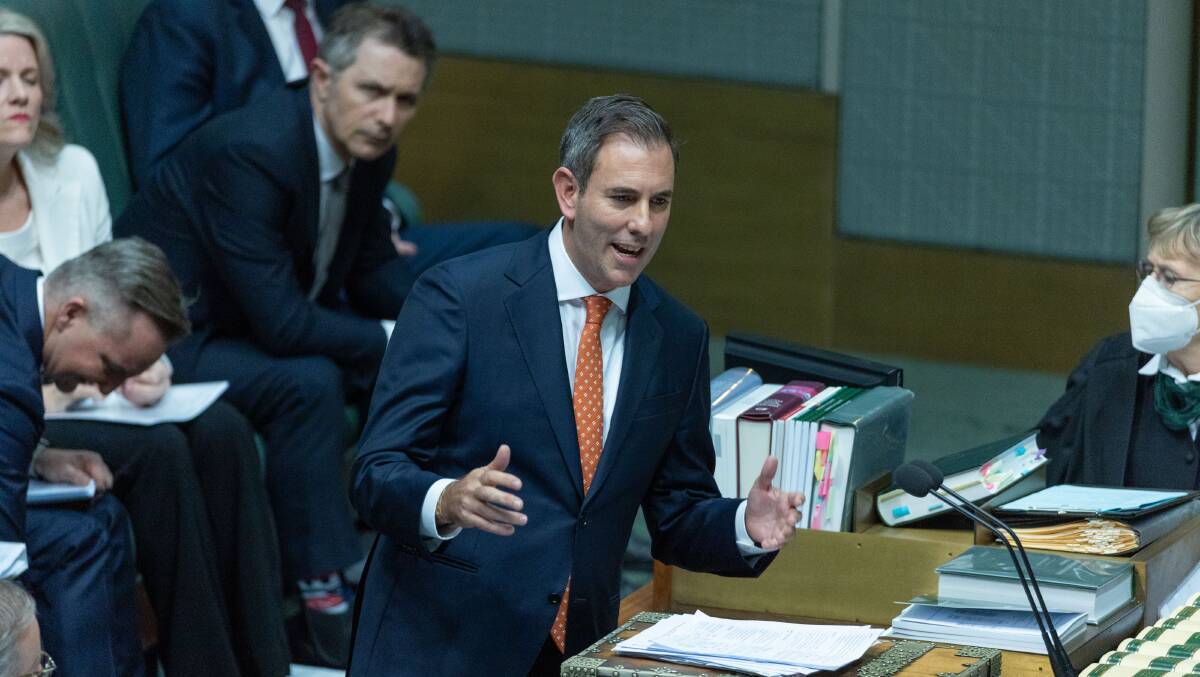
Turnover in retail and construction has weakened, adding to evidence that households are reining in their spending in response to high interest rates and growing living expenses.
Subscribe now for unlimited access.
or signup to continue reading
As critics continue to challenge the government's claim its budget does not add to inflation, figures show turnover among retailers shrank by 2 per cent in March and was just 3.2 per cent higher than a year earlier.
The expansion is far below the double-digit growth experienced by the sector during the second half of 2022 as cashed-up consumers splurged following the end of COVID lockdowns.
The Australian Bureau of Statistics data, based on monthly Business Activity Statements submitted to the tax office, show people continued to spend up on arts and recreation services. Turnover in the sector (which is much smaller than retail) climbed almost 10 per cent in March and was up 9.5 per cent for utilities, reflecting growing energy bills for households.
But turnover in the construction sector, which is directly exposed to tighter monetary policy through more expensive loans, joined retail in going backwards in March, albeit by a small 0.7 per cent. The dip is in keeping with other data showing that building approvals and new housing loans are well down on levels reached last year.
The results, combined with figures released earlier in the week showing the volume of retail sales continued to fall in the March quarter and a Westpac index indicating card use has slumped, are likely to increase the Reserve Bank of Australia's confidence that its succession of 11 interest rate hikes are working to dampen demand in the economy and slow inflation.
In the May budget, Treasury said inflation peaked at 7.8 per cent late last year and predicts it will ease to 6 per cent in June and drop to 3.25 per cent by mid-2024.
But the government is being attacked over its claim that the budget, which includes $14.6 billion of living cost relief, will not add to inflation or lead to higher interest rates.
READ MORE:
The Opposition's leader in the Senate, Simon Birmingham, said the budget would increase inflation pressures in the economy.
"What we're hearing from [independent economist] Chris Richardson, from UBS, from Goldman Sachs, from indeed Standard and Poor's, they're all ... lining up now to say this budget does have extra spending, that spending will be inflationary, and it does put extra pressure on the Reserve Bank for further interest rate increases," Senator Birmingham said.
But Treasurer Jim Chalmers rejected the claim, arguing the living cost relief included in the budget had been carefully designed not to fuel inflation.
"Treasury forecasts our cost of living policies will directly lower price pressures and the CPI [consumer price index] in 2023-24 and will not add to broader inflationary pressure in the economy," Dr Chalmers told Question Time. "This budget will make life easier for people while not adding to inflationary pressures in the economy."
Treasury predicts the government's living cost assistance will subtract 0.75 of a percentage point from the CPI next financial year.
In addition, the government has committed to limit real payments growth to an average of 0.6 per cent a year over the next five years, a move Treasury said would help ensure fiscal policy "is working in line with monetary policy to tackle inflation in the near term".
Investors do not appear to think the budget will have sufficient impact on inflation to concern the RBA.
Market rate hike expectations have barely budged since the budget and indicate that the official cash rate has peaked at 3.85 per cent and is likely to start coming down late this year.


